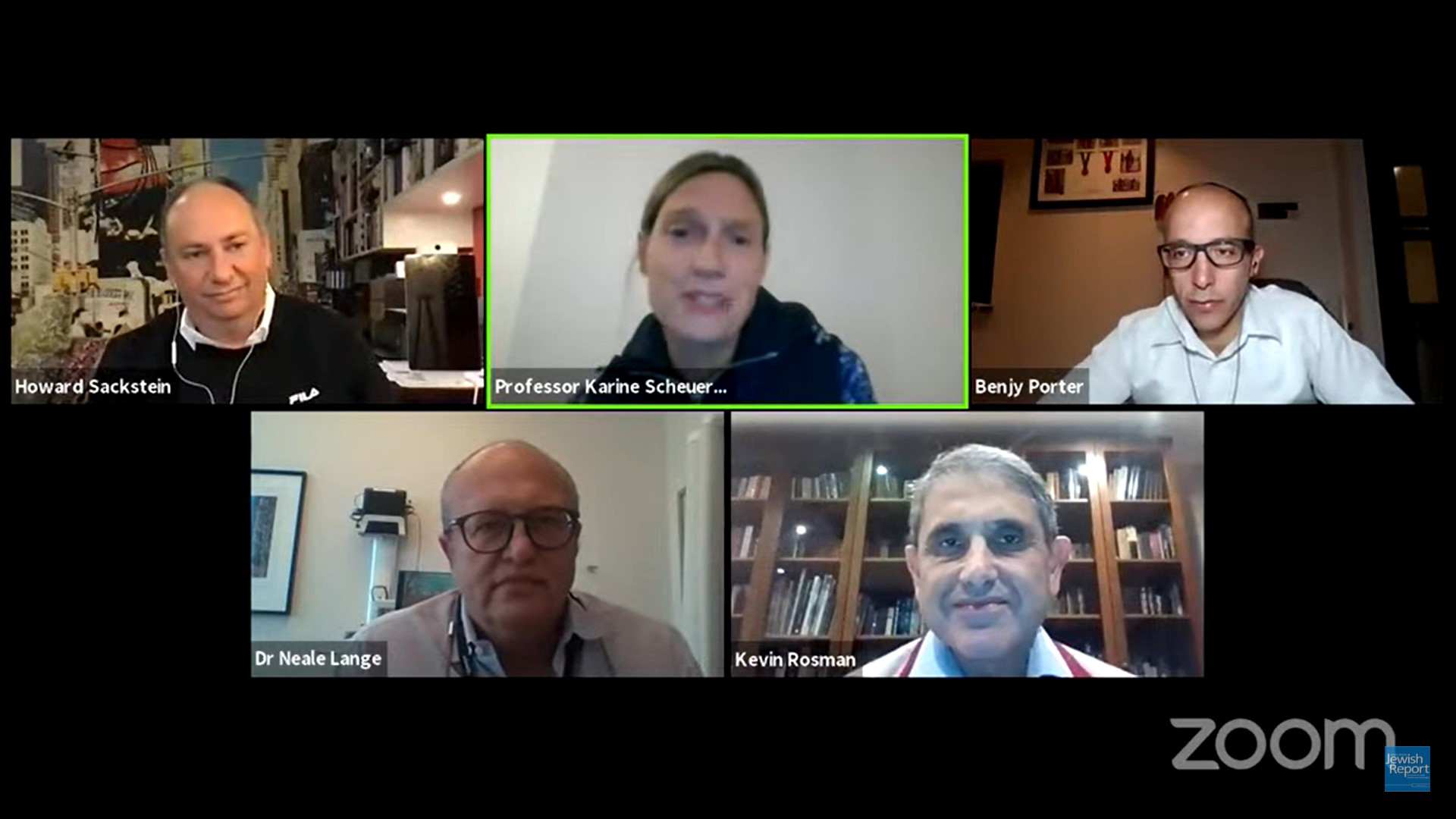
Lifestyle

Sleep webinar has some eye-opening facts
Published
3 years agoon
Sleep should come naturally, yet our inability to get enough of it is an obsession of the modern age.
“Sleep is a smiley faced curve of death,” said Professor Neale Lange, an international thought leader in sleep at the University of Colorado and a graduate of the University of the Witwatersrand (Wits). “Those sleeping too much and those sleeping too little both die earlier than others.” Lange was speaking at the SA Jewish Report’s webinar, Sleep, on 17 May.
Sleep helps to clear the brain of the metabolic products that occur during wakefulness, Lange says, such as amyloid beta and tal proteins which deposit themselves in the brain leading to dementia, alzheimers, and following recent studies, Parkinson’s disease.
“The best investment you can make to defer dementia is to invest in adequate amounts of sleep at the correct time.”
What’s the right amount of sleep? “The clinical rule of thumb is nine hours as ‘normal’,” Lange says. “Enough to make you feel good, and this varies over life,” says Dr Kevin Rosman, a neurologist and the founder of The Morningside Sleep Clinic. “By adulthood, you need about 7.5 to eight hours a night.”
We don’t have to do that sleeping at night, and we can bank it up for lean times – up to a point. “A ‘nappocino’ is a great idea, especially if you are sleep deprived during the day or you suspect that the quality of your sleep is poor,” says Lange. “Increasing your quantity of naps is perfectly fine. Ultimately, a nap should be for the duration of 30 or 90 minutes.” He explains that 90 minutes allows you to get to a stage of sleep inertia, or deep sleep, but 30 minutes while restful, doesn’t allow you to get to that stage.
“The rule of thumb is that you can pay back sleep within 48 hours, so it’s good to catch up on weekends, but you may not be paying back Monday, Tuesday, and Wednesday.”
“You can bank up sleep a few days before a sporting event [which starts early],” says Professor Karine Scheuermaier, an expert on sleep, circadian rhythms, and health at Wits. “This has been proven by studies in the military, but it’s best to work to change your circadian rhythm beforehand.”
We didn’t always do all our sleeping in one go. “Before the advent of street lights, we had a bimodal sleep pattern,” says Lange. “We would go to sleep at dark, wake at midnight and interact over a candle, then go back to sleep until the morning. And, we did just fine for centuries. That said, humans have consolidated their sleep into a single period, and we don’t really fully understand the implications of breaking up sleep.
“All stages are important, but you are looking for stable sleep in the early part of the night, so the second four hours may have less slow-wave sleep. However, it’s better to get broken than reduced sleep.”
You can sleep too much, and after an abnormal amount of time, the “battery stops accepting charge”, the experts say. Hypersomnia is a sign of depression. Insomnia, on the other hand, can cause depression and other mental-health problems.
They blame our epidemic of sleep deprivation on a number of things, including modern technology and social expectation – particularly careers like healthcare or the law, where we are awarded by society and the system if we can function without sleep.
The internet and television are big culprits, giving teens 24-hour connectivity on their phones and undermining their whole notion of sleep. The blue and white light coming off your screens “literally screams at your brain that it’s awake”, they say, though blue-light blocking amber-coloured glasses can help.
Disorders and diseases like restless leg syndrome, nocturia, trauma, irritable bowel syndrome, obesity, depression, sleep apnoea, and COVID-19 also play their part. So, too, does a poor diet and habits that “reward” you for broken sleep, like waking and eating, looking at your phone, or doing chores so that you don’t have to do them tomorrow.
Recent studies have found a link between “long-COVID” and insomnia or excessive sleepiness, which parallels the findings after the Spanish flu epidemic of 1918. “When they died, and were dissected, they found that their sleep and awake pathways were affected by the virus,” says Scheuermaier. “Whether we’re affected directly by the toxicity of the virus [through the nose], we’re not sure yet, but posttraumatic stress disorder [after a stay in intensive care, for example] is part of it.”
Though treatment varies, doctors are united on what constitutes good sleep hygiene.
- Wear loose, comfortable clothing;
- The darker the room the better;
- A lower temperature helps us to fall asleep, about 18 to 19 degrees is best, though women tend to prefer a warmer temperature;
- Silence is best;
- Your mattress should allow you to lie absolutely flat, and your pillow should support the space between your head and shoulder;
- Avoid caffeine or stimulants before going to bed;
- Don’t drink alcohol just before bed as it will help put you to sleep, but wake you up after a few hours;
- A hot drink, meditation, progressive relaxation, yoga, or “calm apps” are fine, but avoid vigorous exercise just before going to sleep;
- Get into a sleep routine. Just as it takes the body about 30 minutes to boot up in the morning, it takes a similar time to boot down, says Rosman. You can’t go from hyper alert (like working or studying) straight to bed. You need time to wind down;
- Get enough sunshine during the day, especially just after you wake up in the morning, says Scheuermaier, as this helps to set your circadian rhythm;
- If you suffer from “sleep maintenance insomnia” where you wake and can’t get back to sleep, don’t reward yourself by eating, looking at screens, talking, or doing chores. Go into another, dimly lit, room, and read something boring like a dictionary;
- Taking sleeping tablets once in a while is OK, but every night is too much, as it suppresses slow-wave sleep;
- Lastly, of course, seek help from the experts if you don’t come right.










